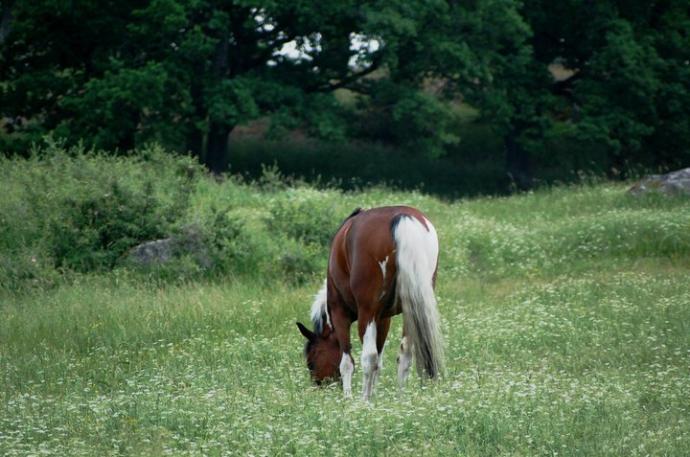Discussion
- Horses are so called opportunistic feeders. An opportunistic feeder has a diet that require a high intake rate and is easy to access. Horses may therefore have evolved not to waste time on food that might not be possible for them to access.
- Most studies on social learning in horses have instead of a detour task used some kind of operant conditioning like visual discrimination, or opening different types of food devices. Those tests have usually shown more social learning than detour tests.
- It has previously been suggested that familiarity between observer and demonstrator affect social learning. A familiar demonstrator increase the likelihood of social learning compared to an unfamiliar demonstrator. The experimenter who demonstrated the detour in experiment 2 was not familiar to any of the horses in the study.
- Being away from other horses is a situation that most riding school horses are not so familiar with. This situation can therefore be somehow stressful for them. It has been reported that stress can impact learning capacities in humans in a negative way. How stress affects learning was however not measured in this particular study but would be interesting to look more into.
- The personality anxiousness and excitability are features that fit a reactive personality which then could explain why they behave the way they do in the experiments. It has previously been demonstrated that a reactive personality may inhibit performance in situations that require exploration and understanding cues.
- It is difficult to say for sure whether or not the horses seek contact because they want help solving the problm or if they just associate the human with carrots.
Conclusions
- Horses that seek contact with humans when faced with an unsolvable problem are not more likely to succeed in a detour after watching a human demonstrator.
- Horses did in general increase the time spent close to a human when faced with a problem but they did not seem to get helped after watching a human demonstrator solving a detour task.
- Neither age, rank, size, sex nor personality had a major impact on the horse’s performance but gelding and ponies showed significantly more social behaviour than mares and horses.
- The personality traits Anxiousness and Excitability both correlated negatively with looking at human in the problem solving experiment and task-oriented behaviour in the detour test.

Responsible for this page:
Director of undergraduate studies Biology
Last updated:
05/10/18
